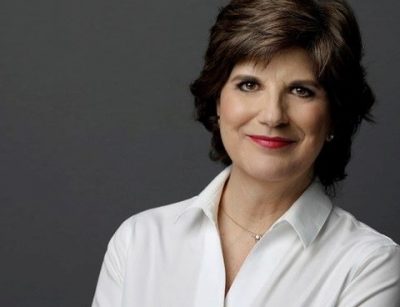Nationalism Blinds Québecers to Oppression at Home and Abroad

To protect its culture Québec has decided veiled women shouldn’t be allowed to teach. But the crucifix adorning the National Assembly can stay, as well as a large cross atop the highest point in Montréal, not to mention the streets named after Catholic saints. The government has decided laïcité (secularism) should be pursued on the backs of the most marginalized immigrants.
Underlying support for this cultural chauvinism is a blindness to power relations that has long been part of Québec’s self-image and is especially evident in international affairs.
The week the governing party, Coalition Avenir Québec, announced it would prohibit public workers in positions of authority from wearing religious symbols, Québecer Catherine Cano was confirmed in the No. 2 position at la Francophonie. After former Governor General Michaëlle Jean failed to win a second term as leader of L’Organisation internationale de la Francophonie (OIF), Ottawa/Québec City secured a return to the organization’s previous leadership structure. Between 2006-15 Québec diplomat Clément Duhaime was No. 2 at the Paris based OIF.
Second biggest contributor to la Francophonie, Ottawa gives $40 million annually to OIF and the other institutions of la Francophonie. A member in its own right, Québec says it provides “over 10 million dollars per year … to international solidarity activities in developing countries that are members of La Francophonie.” Québec’s international affairs ministry is named Le Ministère des Relations internationales et de la Francophonie.
La Francophonie seems to stir linguistic chauvinism within Québec nationalist circles. During the 2016 OIF Summit in Madagascar Le Devoir bemoaned the decline of la langue de Molière in the former French colony. Titled “Quel avenir pour le français?: À Madagascar, la langue de Molière s’étiole”, the front page story cited an individual calling the post-independence focus on the country’s majoritarian, Indigenous language “nothing less than a ‘cultural genocide.’” According to the head of OIF’s Observatoire de la langue française, Alexandre Wolff, it was “urgent to show French can be useful” in the island nation. The progressive nationalist paper’s hostility to Malagasy wasn’t even presented as a battle with the dominant colonial language. The story noted that “English is practically absent” there.
OIF reinforces cultural inequities in former French and Belgian colonies. While OIF is largely designed to strengthen the French language, is there any place aside from Québec where French has been the language of the oppressed?
Even more than the English, French imperialists used language as a tool of colonial control. Schooling in French African colonies, for instance, was almost entirely in French, which stunted the written development of local languages as well as the rise of a common national or regional language. It also oriented the intellectual milieu towards the colonial metropole.
At the same time newly independent African countries attempted to promote indigenous languages, Ottawa channeled hundreds of millions of dollars in aid to link Québec with “French” countries. Efforts to strengthen the ‘common’ linguistic heritage between Québec and Algeria stunted its post-independence moves towards strengthening Arabic. Though less stark, the same dynamic played out in the Congo with Lingala, in the Central African Republic with Sango and in Senegal with Wolof. In Haiti Québec’s large (linguistically inspired) presence has reinforced the stark French-Creole linguistic/class divide. While basically everyone speaks Haitian Creole, less than 10 per cent of Haitians speak French fluently. French is the language of Haiti’s elite and language has served as a mechanism through which they maintain their privilege. (In terms of Haitians adopting a more useful common second-language, Spanish would facilitate ties with the eastern half of the island while English would enable greater relations with other parts of the Caribbean.)
Ottawa greatly expanded its aid to “Francophone” nations to weaken the sovereignty movement in the mid-1960s. In an influential 1962 internal memo, long time External Affairs official Marcel Cadieux argued that channeling foreign aid to “French” Africa was the most politically expedient means of demonstrating concern for Quebecker’s nationalist aspirations. Canadian aid to former French colonies skyrocketed through the late 1960s and Canada provided as much as a third of the budget for the institutions of OIF.
Ottawa/Québec’s interest in former French colonies isn’t only about culture of course. Namesake of the 1965 Doctrine that made projecting French the objective of Québec’s international relations, Paul Gérin-Lajoie built up Québec-based companies as head of the Canadian International Development Agency in the 1970s. SNC Lavalin was hired to manage CIDA offices in Francophone African countries where Canada had no diplomatic representation. Six years after Algeria won its independence from France, SNC’s vice president of development Jack Hahn described their plan to enter Algeria: “They might be interested in North American technology offered in French.”
In February Ministre des Relations internationales et de la Francophonie du Québec Nadine Girault spoke to the SNC Lavalin, Bombardier, Rio-Tinto, etc. sponsored Conseil des relations internationales de Montréal on “Le Québec à la conquête des marchés étrangers: tirer profit de 50 ans d’affirmation à l’international” (Québec seeks to conquer foreign markets: profiting from 50 years of international affirmation). Girault focused on employing Québec’s substantial linguistically inspired presence in Africa and elsewhere to benefit corporations, noting “we will take advantage of 50 years of affirmation to conquer foreign markets.”
While framed as a defence against English domination in North America, promoting French in Haiti, Senegal or Algeria can appear progressive only if you ignore imperialism and international power relations. But many Québecers have been willing to do just that.
Like Canadian cultural chauvinists who never let the truth stop them from claiming their country is a benevolent international force, nationalism has blinded many Québecers to their oppression abroad and at home. Protecting Québec culture by targeting the most marginalized immigrants is a similar type of cultural chauvinism.
*
Note to readers: please click the share buttons below. Forward this article to your email lists. Crosspost on your blog site, internet forums. etc.

